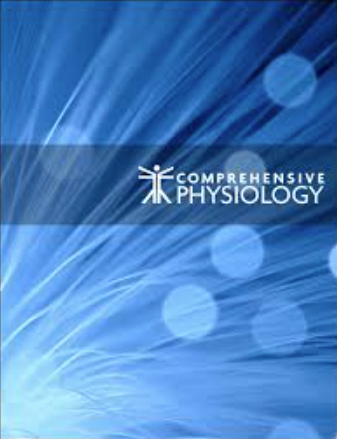下载PDF
{"title":"心脏Na+ -Ca2+交换器:从结构到功能。","authors":"Michela Ottolia, Scott John, Adina Hazan, Joshua I Goldhaber","doi":"10.1002/cphy.c200031","DOIUrl":null,"url":null,"abstract":"<p><p>Ca<sup>2+</sup> homeostasis is essential for cell function and survival. As such, the cytosolic Ca<sup>2+</sup> concentration is tightly controlled by a wide number of specialized Ca<sup>2+</sup> handling proteins. One among them is the Na<sup>+</sup> -Ca<sup>2+</sup> exchanger (NCX), a ubiquitous plasma membrane transporter that exploits the electrochemical gradient of Na<sup>+</sup> to drive Ca<sup>2+</sup> out of the cell, against its concentration gradient. In this critical role, this secondary transporter guides vital physiological processes such as Ca<sup>2+</sup> homeostasis, muscle contraction, bone formation, and memory to name a few. Herein, we review the progress made in recent years about the structure of the mammalian NCX and how it relates to function. Particular emphasis will be given to the mammalian cardiac isoform, NCX1.1, due to the extensive studies conducted on this protein. Given the degree of conservation among the eukaryotic exchangers, the information highlighted herein will provide a foundation for our understanding of this transporter family. We will discuss gene structure, alternative splicing, topology, regulatory mechanisms, and NCX's functional role on cardiac physiology. Throughout this article, we will attempt to highlight important milestones in the field and controversial topics where future studies are required. © 2021 American Physiological Society. Compr Physiol 12:1-37, 2021.</p>","PeriodicalId":10573,"journal":{"name":"Comprehensive Physiology","volume":"12 1","pages":"2681-2717"},"PeriodicalIF":4.2000,"publicationDate":"2021-12-29","publicationTypes":"Journal Article","fieldsOfStudy":null,"isOpenAccess":false,"openAccessPdf":"https://www.ncbi.nlm.nih.gov/pmc/articles/PMC8773166/pdf/nihms-1770930.pdf","citationCount":"10","resultStr":"{\"title\":\"The Cardiac Na<sup>+</sup> -Ca<sup>2+</sup> Exchanger: From Structure to Function.\",\"authors\":\"Michela Ottolia, Scott John, Adina Hazan, Joshua I Goldhaber\",\"doi\":\"10.1002/cphy.c200031\",\"DOIUrl\":null,\"url\":null,\"abstract\":\"<p><p>Ca<sup>2+</sup> homeostasis is essential for cell function and survival. As such, the cytosolic Ca<sup>2+</sup> concentration is tightly controlled by a wide number of specialized Ca<sup>2+</sup> handling proteins. One among them is the Na<sup>+</sup> -Ca<sup>2+</sup> exchanger (NCX), a ubiquitous plasma membrane transporter that exploits the electrochemical gradient of Na<sup>+</sup> to drive Ca<sup>2+</sup> out of the cell, against its concentration gradient. In this critical role, this secondary transporter guides vital physiological processes such as Ca<sup>2+</sup> homeostasis, muscle contraction, bone formation, and memory to name a few. Herein, we review the progress made in recent years about the structure of the mammalian NCX and how it relates to function. Particular emphasis will be given to the mammalian cardiac isoform, NCX1.1, due to the extensive studies conducted on this protein. Given the degree of conservation among the eukaryotic exchangers, the information highlighted herein will provide a foundation for our understanding of this transporter family. We will discuss gene structure, alternative splicing, topology, regulatory mechanisms, and NCX's functional role on cardiac physiology. Throughout this article, we will attempt to highlight important milestones in the field and controversial topics where future studies are required. © 2021 American Physiological Society. Compr Physiol 12:1-37, 2021.</p>\",\"PeriodicalId\":10573,\"journal\":{\"name\":\"Comprehensive Physiology\",\"volume\":\"12 1\",\"pages\":\"2681-2717\"},\"PeriodicalIF\":4.2000,\"publicationDate\":\"2021-12-29\",\"publicationTypes\":\"Journal Article\",\"fieldsOfStudy\":null,\"isOpenAccess\":false,\"openAccessPdf\":\"https://www.ncbi.nlm.nih.gov/pmc/articles/PMC8773166/pdf/nihms-1770930.pdf\",\"citationCount\":\"10\",\"resultStr\":null,\"platform\":\"Semanticscholar\",\"paperid\":null,\"PeriodicalName\":\"Comprehensive Physiology\",\"FirstCategoryId\":\"3\",\"ListUrlMain\":\"https://doi.org/10.1002/cphy.c200031\",\"RegionNum\":2,\"RegionCategory\":\"医学\",\"ArticlePicture\":[],\"TitleCN\":null,\"AbstractTextCN\":null,\"PMCID\":null,\"EPubDate\":\"\",\"PubModel\":\"\",\"JCR\":\"Q1\",\"JCRName\":\"PHYSIOLOGY\",\"Score\":null,\"Total\":0}","platform":"Semanticscholar","paperid":null,"PeriodicalName":"Comprehensive Physiology","FirstCategoryId":"3","ListUrlMain":"https://doi.org/10.1002/cphy.c200031","RegionNum":2,"RegionCategory":"医学","ArticlePicture":[],"TitleCN":null,"AbstractTextCN":null,"PMCID":null,"EPubDate":"","PubModel":"","JCR":"Q1","JCRName":"PHYSIOLOGY","Score":null,"Total":0}
引用次数: 10
引用
批量引用


 求助内容:
求助内容: 应助结果提醒方式:
应助结果提醒方式:


